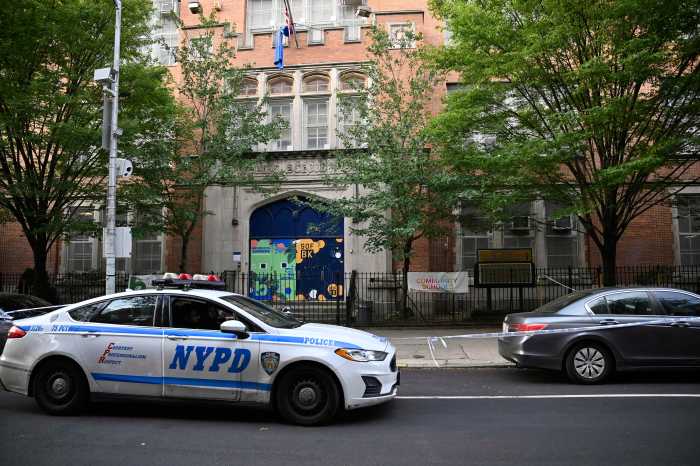By Lenore Skenazy
Clay Routledge, author of the new book, “Supernatural: Death, Meaning, and the Power of the Invisible World,” was watching his university’s football team play a national championship on television. There were about 20 other friends in the room when a girl of 9 or 10 twirled in. She pointed out that just because their team was ahead didn’t mean they still couldn’t lose.
At which point one of the men told the girl to leave and if she came back she would jinx the game.
“Hey, take it easy!” “She’s just a kid!” “Don’t be a jerk!”
Sorry — none of the adults said any of that. They just kept watching the television, as if this guy had not just said something both mean and, well, crazy. How could a girl twirling in or out of a room possibly affect the outcome of a football game?
To believe that cause-and-effect connection would be to believe in the supernatural. And that turns out to be something all of us, even the most hardened atheists, do.
Routledge studies why we believe what we believe, and in turn how those beliefs affect us.
Every day most of us do some little things without thinking about what spiritual reality they represent. We miss a train and think, “I wasn’t meant to catch that one.” We find a dollar and think, “Someone’s looking out for me!”
We take an umbrella in case it rains — and also to prevent it from raining because someone somewhere is paying attention to our accessories and deciding the weather accordingly. We act, in other words, as if there is a being unseen and unknown, deeply concerned with the way our day (and life) is going.
This doesn’t mean we’re nuts. And, in fact, it can be healthy to believe in something beyond the concrete, said Routledge. It’s even possible we are hard-wired to believe in the supernatural and always have been. A 100,000-year-old archeological site showed signs of some sort of ritualistic burial, he writes, suggesting that a belief in the supernatural has been around a long time.
But why?
“A big area of my research is studying the underlying nature of the supernatural in the mind, especially issues related to fear, anxiety and uncertainty,” Routledge said in a phone interview, “and our need to be part of something bigger than ourselves.”
A child of missionaries, Routledge was born in West Africa and grew up with religion all around him. One thing religion does very well, he said, is provide some solace about death.
Faced with mortality, many of us dearly hope or believe that death is just a portal to someplace else. Routledge quoted Larry King — yes, the CNN guy — saying, “If you didn’t die, there would be no religion.”
But religion does more than just comfort those contemplating death, or whose loved ones have died. It actually makes us more able to deal with life. A 2010 USA Today and Gallup poll found that 83 percent of Americans believe prayers get answered. That means most of us believe help is on the way, even if we don’t know how or when it will appear.
A belief in a god also seems to make people more brave, for two reasons. First of all, it is an “anxiety buffer.” A deep, committed faith mitigates anxiety, as does the strong social network religion often offers.
Then, too, feeling like you are in the hands of a higher being can be as reassuring as growing up bathed in the love of a supportive parent.
If you are sure that someone is always believing in you, you can go further out into the world — do more, try more — because you know that person will always be there when you need them.
In short, religion is so powerful, so comforting, and so helpful in making sense of the world that it is hard to live without. And that may be why many of the folks who say they don’t believe in a god are really just rejecting a “brand” of god — organized religion.
“The less traditionally religious people become more interested in other kinds of magical ideas,” said Routledge. “These include conspiracy theories and paranormal activity. “The percentage of people who believe in ghosts is much higher among people who don’t regularly attend church.”
In our smorgasbord society, fewer and fewer people affiliate with an established religion. Instead, they mix and match: A little yoga, a little Oprah, a dollop of Kabalah.
But scratch a little deeper and you’ll find a belief that the world somehow makes sense, even if we don’t understand the plan.
So long as we keep pint-sized skeptics out of the TV room.
Lenore Skenazy president of Let Grow, and founder of Free-Range Kids.



































